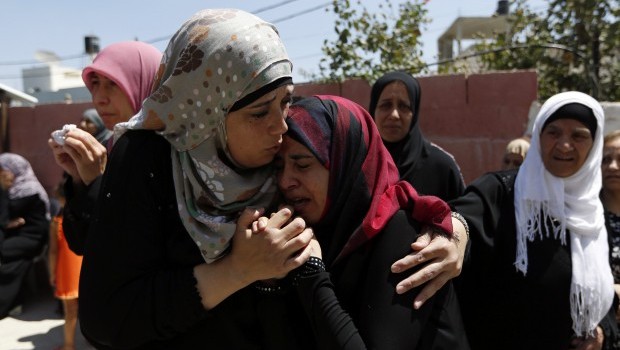I listened to part of a discussion between a radio presenter and his audience on the BBC last Sunday night. It dealt with the suggestion by a senior army officer that women in the armed serves should be allowed to serve in front-line units and be given close combat roles. This would mean allowing them to fire on and physically confront enemy soldiers if the situation required it.
The presenter rose angrily in objection to what he saw as the imbalance between men’s and women’s physical capabilities, linking the issue to gender equality.
First, this particular piece of information was new to me, and perhaps to many other listeners too. I had not known that British Army regulations prohibit women from performing front-line duties. It is another example that proves that even in developed countries, lines are drawn between what is permissible for men and women to do in different fields, including the battlefield.
I recalled this radio discussion on Tuesday morning as I read a report by the Associated Press about a group of women joining the Palestinian Presidential Guard in Ramallah. This group is made up of 22 female graduates who will join the Presidential Guards, which currently consists of 2,600 men.
The report described the very tough training sessions undertaken by these women prior to their graduation from the military academy, engendering feelings of admiration for the will of these young women. They could certainly have chosen an easier way to serve their country.
The story takes me back to Gaza, where the security force of the ruling authority is made up of 16,000 men and 400 women. Once again, feelings of admiration for these women emerge naturally as one contemplates the very presence of Palestinian women in a field which is traditionally monopolized by men. And this is the status quo not just in the institutions of the unrealized Palestinian state project, but also in a number of other countries, including countries where women’s rights have made great progress.
A salute is well and truly due to all Palestinian women. Throughout all the long years of one of the 20th century’s worst injustices, Palestinian women have given, and continue to give, everything for our people’s just cause.
Without the need to go into detail or mention names, it is enough to note that no avenue of giving has not been used by Palestinian women, whether paying with blood or holding back tears; whether the agony of incarceration or the pains of hunger and indignity. Palestinian women have faced the oppression of the occupier as well as injustice at the hands of those closest to us, the Palestinian leadership.
All of this happened in both the homeland and in the camps of the diaspora. These are truly the injustices of the occupation! While it is expected, as no occupier adorns the necks of those they occupy with rose garlands, it is even worse when it happens at the hands of Palestinian leaders.
It is not important to ask how these people can look at themselves in the mirror, because the mirror may lie and the mind may deceive. The important thing is to know how those involved in the inter-Palestinian conflict live with themselves. Do they sleep well at night without a thought to what their conflict did to the homeless among the Palestinian people? Do they have the courage to look a Palestinian mother in the eye, after she gave birth to one of the “sons of the cause”? You see them, even within the same organization, pretending to be nice to each other, while the hatred they hide inside is more than their enemy could hope for.
What is the reason for all this plotting against one another? Is it for some status here or a deal there? Is it to hold on to power or impose a government? Where? In a land which has not yet become a state? This is not to mention the fight over the control of refugee camps, which logic states should be under the control of the authorities of the host countries, and the struggle over roles and positions in departments and institutions, both inside and outside the country.
Yes, all this has happened, and continues to happen till this day. It is recorded and documented in records which cannot be shredded or burned up, but the Palestinian heart can transcend them and forgive when it feels, through actions not words, that the hearts of those who are responsible for their cause have honestly been cleansed and that the voice of reason will prevail over the ignorance of infighting, the harm of which has exceeded all imagination.
Corruption appeared inside the ranks of the Palestinian Liberation Organization at an early stage. It grew and flourished and moved to the armed groups, starting a struggle for posts in various executive bodies and organizations, while there were also arguments over the budget. All that was simple compared to the battles between the “sons of the cause,” not only in the lands of others, but also in the land that is supposed to be their own state.
Is it a wonder, then, after all that has happened and is still happening, at the hands of those who are supposed to be responsible for it, that all initiatives that hold a glimmer of hope for a better future will fail? Of course not.
Does this exonerate Israel’s politicians, through its various stages of responsibility? This question does not need a genius to answer; the reasonable people in Israel and the world know the extent of the responsibility of the Tel Aviv leadership and their brilliance at destroying the numerous opportunities for peace. However, putting all the blame on Israel is choosing the easy option; the difficult option is to predict when most leaders of Palestinian groups will admit their responsibility for the self-destruction of the future of Palestine.
